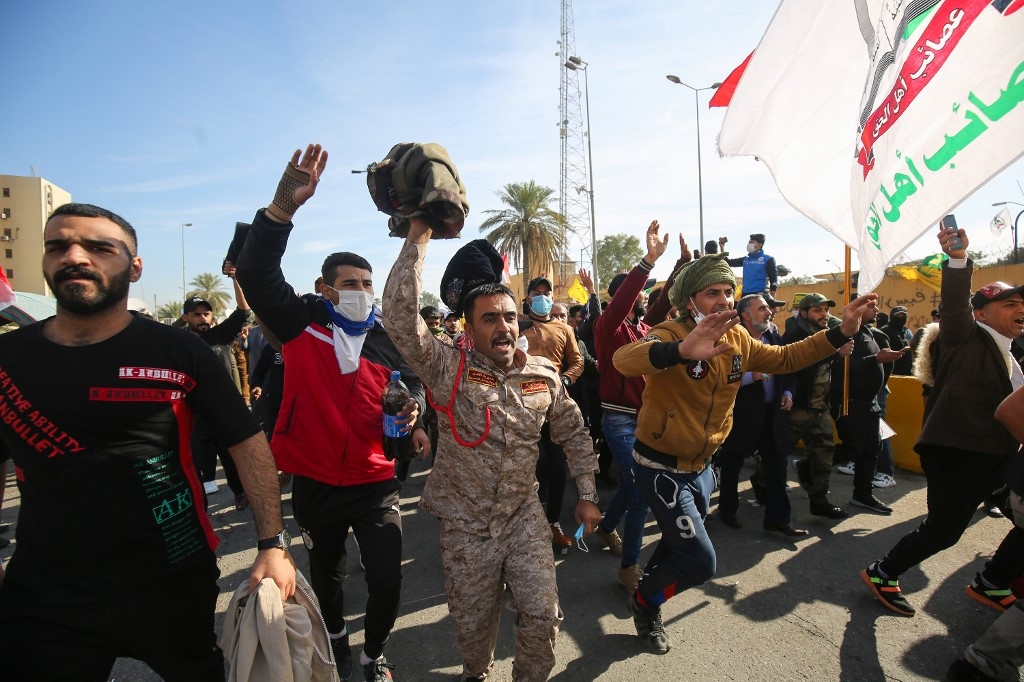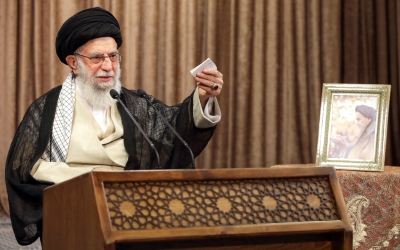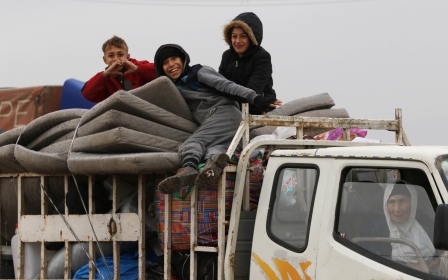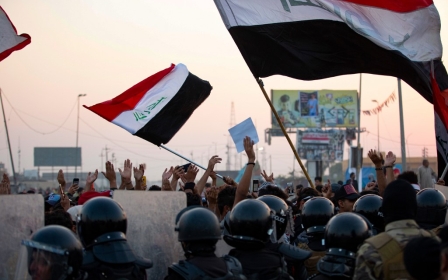Iraqi translators working with US military fear retaliation from Iran-backed militias: Report

Many Iraqi citizens who have worked with the US military as translators fear their personal information, including home addresses, may have been obtained by pro-Iran militias.
The Washington Post reported on Thursday that the US military had given information pertaining to translators - their names, addresses, and car licence plate numbers - to the Iraqi military to help the translators travel around the country.
Recently, Iran-backed militias "have so permeated parts of Iraq's security apparatus" that they have been able to access this information, it said.
"It's not a surprise that militias have these documents," said an official in Iraqi Prime Minister Mustafa al-Kadhimi's office.
"They believe it's going to be a long battle, so they will gather as much leverage over US interests as possible."
A list of the names of some translators, along with their personal information, was published by Sabreen News, according to the Post, although it was not able to verify its authenticity.
Two Iraqi translators with the US military who spoke to the newspaper said they had seen militia fighters at an Iraqi military checkpoint carrying a list of personal details acquired from a military coordination centre run by Iraqi security forces.
"When we realised where the information had come from, we were shocked. The list contains everything. Phone numbers, ID numbers, even our real names," said one translator from Baghdad.
"It'd be an easy mission to hunt us down," the translator said. "They have all the information now. What if this list now goes online?"
The American military said it had not shared such information with the Iraqi military, yet the newspaper said it had received documents that showed the transfer of data to Iraq's security forces at three military camps in Baghdad.
In recent months, the concern for these translators has grown as many have been laid off amid Washington's drawdown from the country.
Some are out of work, out of money, and out of protection.
Earlier this year, the US had agreed to expedite hundreds of cases of translators applying for refugee status in the US, after their cases were halted when US President Donald Trump's travel ban was announced in his first month of office in 2017.
On 10 February, a federal court in Washington state made the announcement that more than 300 refugees, who were close to getting the green light to enter the US in 2017, would have their cases accelerated.
Middle East Eye propose une couverture et une analyse indépendantes et incomparables du Moyen-Orient, de l’Afrique du Nord et d’autres régions du monde. Pour en savoir plus sur la reprise de ce contenu et les frais qui s’appliquent, veuillez remplir ce formulaire [en anglais]. Pour en savoir plus sur MEE, cliquez ici [en anglais].





